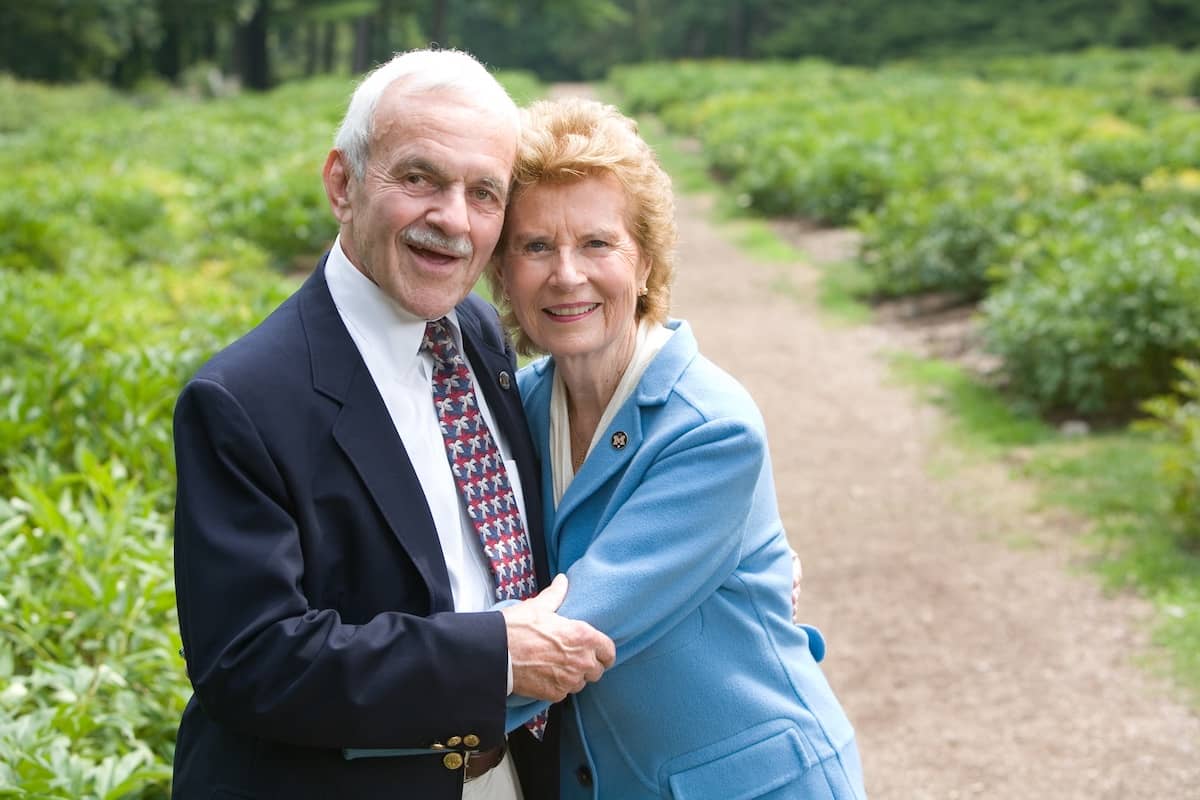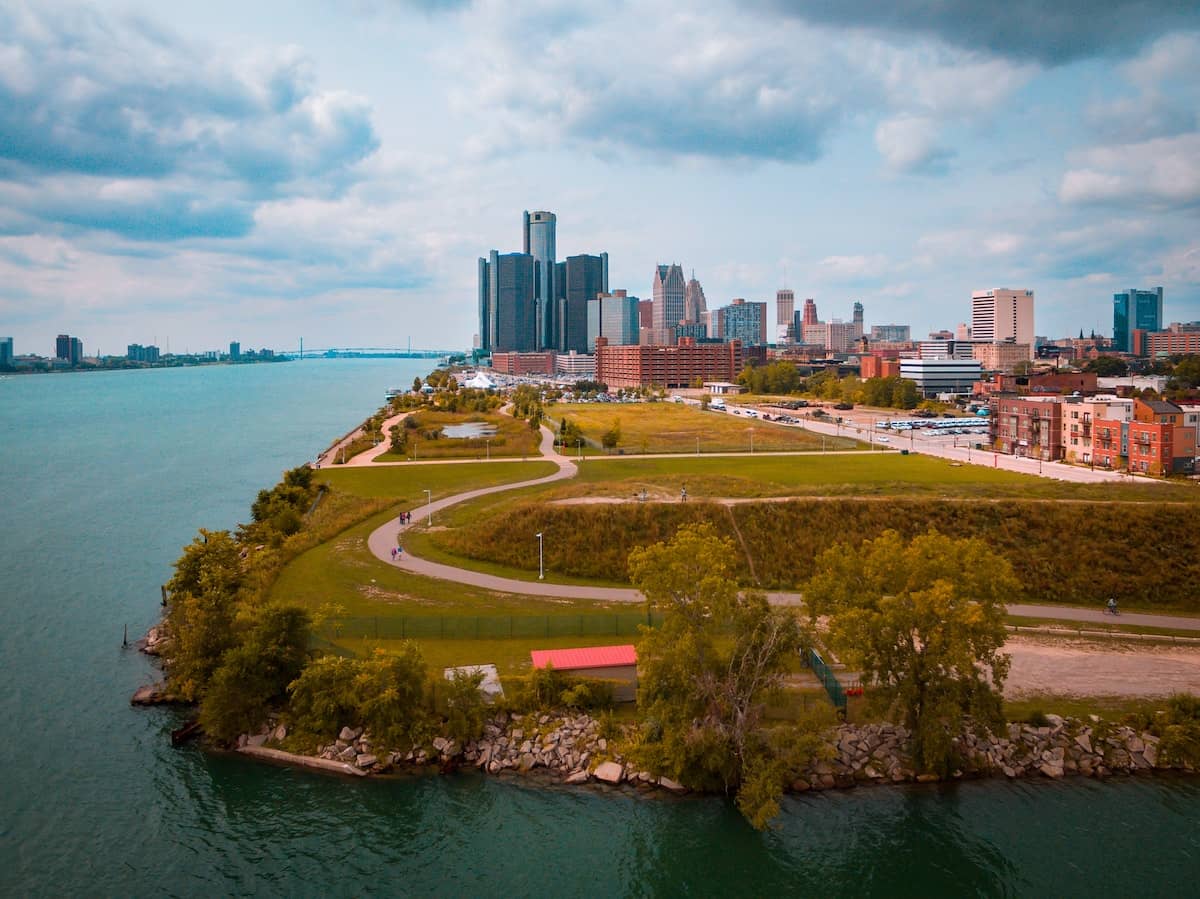SITTING ON a major intersection of the largest freshwater system in the world, the City of Detroit operated as a hub of commerce and culture long before the automotive boom of the early 20th century. The natural resources of the Great Lakes fueled Detroit’s industries and, of course, life. In fact, the Great Lakes Region is the primary water source for more than 40 million people.
Having both been born and raised in metro Detroit, Fred and Barbara Erb knew the value of the Great Lakes to their beloved city. Barbara’s admiration of nature began as a young child spending summers on Lake Huron with her family. As she grew, she became passionate about organic gardening and wholesome eating — teaching others the importance of growing their own food, supporting local farmers, recycling and other environmentally friendly practices.

Photo Credit: The Erb Family
Fred traveled as a young adult, studying engineering in Upstate New York and serving in the United States Army. While stationed near New York City, he developed his lifelong love of jazz music. Upon his return to Detroit and inheritance of his family’s lumber company, Fred committed himself to growing a successful sustainable business, and by the 1970s, Erb Lumber became the largest lumber supplier in Michigan.
Together, Fred and Barbara’s collection of passions and experiences inform the funding strategies of the Fred A. and Barbara M. Erb Family Foundation. Established in 2007, the foundation supports urban and agricultural runoff reduction, Great Lakes stewardship, environmental health and justice, sustainable business, jazz education, anchor arts, and — in recognition of Fred’s hard-fought battle at the end of his life — Alzheimer’s research.
“The Foundation’s board of directors chose to partner with American Forests because we could envision the multi-faceted impact the tree canopy would have on metro Detroit,” says Neil Hawkins, president of the Erb Family Foundation. “The Foundation supports Great Lakes water quality and asthma initiatives, and we believe trees have an important role to play in both issues when neighborhoods are thoughtfully forested.” In 2020, the Erb Family Foundation began supporting American Forests by funding research to demonstrate how large-scale reforestation in Detroit could reduce stormwater runoff and provide financial benefits to the city.
“The Foundation’s board of directors chose to partner with American Forests because we could envision the multi-faceted impact the tree canopy would have on metro Detroit.” — Neil Hawkins, President of the Erb Family Foundation
Runoff in Detroit is a particular problem because much of the city still utilizes a combined sewer system. When the system is inundated by stormwater, it often results in untreated sewage discharges into the Great Lakes freshwater system, representing one of the greatest threats to clean water in the U.S. While the benefits of trees to air quality and temperature are widely reported, their ability to slow stormwater runoff and resulting sewer overflows is another powerful reason to invest in urban canopy. By helping address stormwater runoff, planting trees can save the City of Detroit money while preserving the Great Lakes ecosystem.
Two years after the completion of the initial urban canopy stormwater research funded by the Erb Family Foundation, Detroit is set to become center stage to the Detroit Tree Equity Partnership, a major collaboration among public and private sector entities, including foundations and nonprofits. The partnership aims to plant 75,000 trees, create more than 300 new jobs and secure $30 million in investments for Detroit neighborhoods during its first five years. This ambitious undertaking is a maturation of the work first set in motion by American Forests and the Erb Family Foundation. In addition to funding the critical research that now informs the priorities of the Detroit Tree Equity Partnership, the Erb Family Foundation has ensured the longevity of the project by contributing $900,000 to multiple partners in this collaborative initiative. The Foundation’s continued support is bolstering this path-breaking initiative that will reduce stormwater runoff and flooding and contribute to improved water quality in the western Lake Erie basin.
“The Foundation provided the startup support to get the Detroit Tree Equity Partnership going,” says Hawkins. “This work could completely change the City of Detroit. Trees can clean and cool the air, provide shade and help manage urban runoff. We are excited to see American Forests implement its ideas and plans on a large scale to benefit neighborhoods and residents in metro Detroit.”

Photo Credit: Kajari Kin / Unsplash